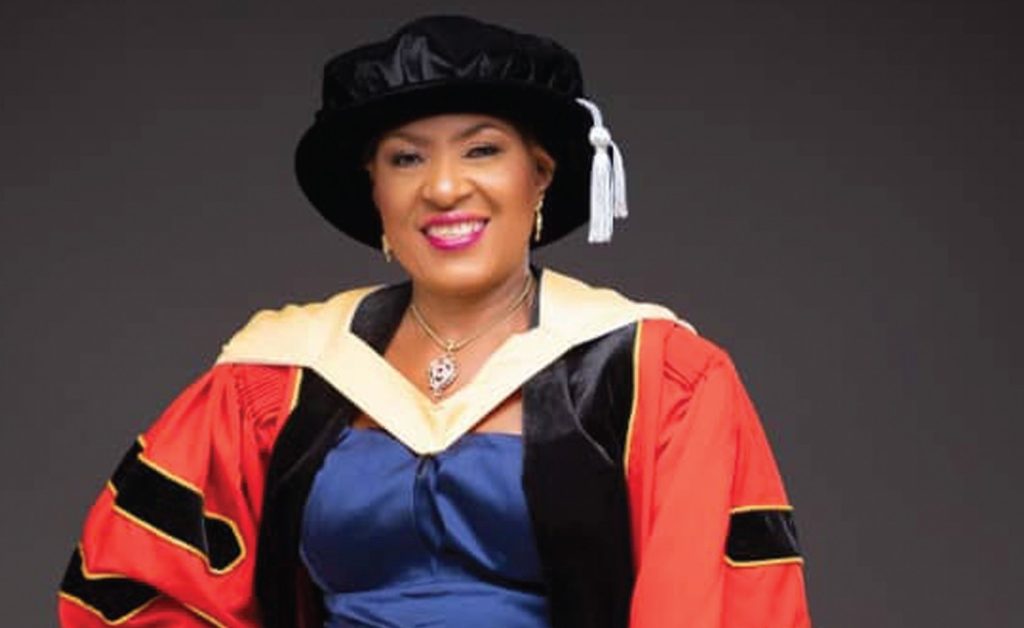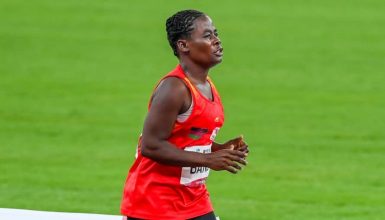Dr. Kelita Kamoto bagged a PhD at 60
“At the age of 60, I achieved my PhD in Molecular Biology with focus on neglected tropical diseases [Sleeping sickness], showcasing that it is never too late to further your education and follow your dreams.”
Meet Dr. Kelita Kamoto, one of 16 women recently celebrated for her academic achievement by Women in Infectious Diseases and Health Research Network in Malawi, Kamuzu University of Health Sciences chapter.

She is proud of her accomplishments and looks forward to making a difference in the field of medicine.
“I am grateful for the opportunities that have allowed me to continuously learn and grow in my profession,” she adds.
Indeed, learning and growing have been pivotal to Kamoto who started out as a teacher.
After her Bachelor of Sciences degree in Biology and Chemistry from Chancellor College, she taught at South End Secondary School for some months.
Teaching is one of her hobbies, especially Mathematics, apart from cooking, baking, swimming and playing squash
Kamoto said: “I had a tendency of introducing the times table to young ones. I appreciated that most children do not like Mathematics. My thinking was that by introducing it at a young age, I set a basic foundation in Mathematics. Mind you, this was before the computer era.
“Any child that crossed my path was subjected to learning the times tables. I remember I taught my five-year old niece how to tell time, analogue and digital. It took us three hours and by the next day, she could tell time.”
While at South End Secondary School, she got a scholarship to study medicine at St. Andrews University in Scotland and was awarded a Bachelor of Science in premedical sciences.
The doctor describes her professional journey as fulfilling and rewarding.
It started when she got her Bachelor of Medicine, Bachelor of Surgery degree in 1994 from the College of Medicine followed by a post graduate diploma (PGD) in Obstetrics in 2000 from the University of Pretoria.
In 2003, she got a Master of Sciences degree in sexually transmitted infections and HIV from University College London and and a PGD in the same fields from the London School of Hygiene and Tropical Medicine.
Her PhD thesis was titled ‘Human Genetic and Immunological Determinants of Trypanosoma Brucei Rhodesiense Sleeping Sickness in Malawi’s Endemic District of Rumphi.’
Kamoto has worked with the Ministry of Health from 1994 until her retirement in 2022.
She has been district, regional and zone health officer, hospital director, director of HIV and Aids.
She has also worked as health technical support service (diagnostics and pharmaceuticals) director, Malawi Prison Services health director and medical officer at One Stop Centre.
Her journey is not short of challenges and obstacles along the way, but I persevered and continued her pursuit for medicine.
“Challenges are even more when you get older and carry more responsibilities. They never spared me. I dealt with with loss of family members as well as marital problems. I lost three sisters in two months, two of these in a space of six days.
“Being human, I gave up, but through prayers and accepting that it was God’s Will, I soldiered on. I did not let anyone or anything stand in the way of my aspirations. I stayed focused, worked hard and never lost sight of my goals,” she said.
Kamoto encourages everyone to believe in themselves and their abilities.
“Remember that success is not determined by age or gender, but dedication and purpose. I am living proof that it is never too late to follow your dreams and passion,” she adds.
Given an opportunity to change her life, Kamoto would remain what she is.
However, she would like to dedicate more of time and expertise to address health impacts of climate change on the vulnerable population such as the poor, women and children.
The doctor feels that the world is not doing enough to address the needs of this voiceless population.
“There is need to develop strategies to prevent and treat neglected tropical diseases in the face of changing climate conditions. My main focus will be improving healthcare access to the vulnerable,” she says.
Kamoto plans to give back to the world she has gained from by sharing her worth, happiness, discipline, friendship, religion and intellect.
She plans to return to any university as lecturer and continue doing research.
“By interacting with students, fellow lecturers and communities, I will share my life’s treasures. The time I leave this world, I will be a professor. I am not there yet, the journey continues,” says Kamoto.
She was born in December 1962 at Queen Elizabeth Central Hospital, a fifth child in a family of 10.
She was the apple of her parents as an academic genius and happy helper around the home that made little Kelita a star of the house.
Kamoto says: “At the end of every term, my father would come to school to get my school report because I was always in the top three.
“At home, I was my mother’s favourite because I was the only child who did household chores without complaining. While my siblings played, I stayed home to help mum. At a young age, I could wake up early in the morning to make the fire for heating up the water and preparing breakfast.”
Little Kelita did not have time to play with a mice called John White.
She explains that mice were house pets in the 60’s, 70’s and 80’s.
Kamoto only learnt about this during her PhD research work when she used mice.
“My younger sister was surprised by my ignorance about John White,” she adds.
They lived in Limbe from her birth until 1976, .
The family later moved to Kamba Township.
“Coming from a big family, I was taught how to love one another and sharing among the siblings. In Limbe, our house was small with one bedroom and all the children slept in the sitting room apart from the very little ones.
“My older brother slept in the kitchen with my uncle. This small house catered for visitors from the village who came to do business in town,” she recalls.
Kamoto went to Kanjedza Primary School for Standard One to Eight.
She was selected to Providence Secondary School before being selected to Chancellor College.
As the first child to go to a boarding school, Kamoto admits she was a bit spoiled.
She also recalled her mother always deworming her because she was skinny as a teenager.
“My older sister visited me every month end with tomatoes, onions, cabbage, lettuce and grilled chicken from Kandodo shops, [akuti zowonjezera magazi] to supplement the boarding food so that I could gain some weight,” she says.
She attributes her success to her mother, now 91 who was teaching her a, e, i, o, u, and some simple additions using seeds.
She ensured their school uniforms were washed by Sunday and distilled kachasu to supplement her father’s income.
Her late father, too, was keen on educating his children and encouraged them to work hard.
He came from Chiradzulu, Sekeya Village, Traditonal Authority (T/A) Nkalo and her mother is from Makwangwala Village in Ntcheu.
Kamoto was a tomboy and naughty, beating other children during their visits to Chiradzulu
“We loved our stay in the village as agogo cooked nsima three times a day with local chickens, eggs or fish, nice food which we could not get in town. I should not forget futali, sweet potatoes/ cassava with groundnuts flour,” she adds.






uzgrjz